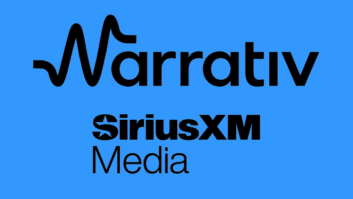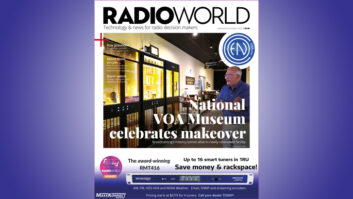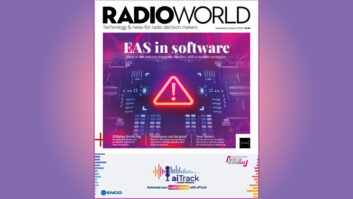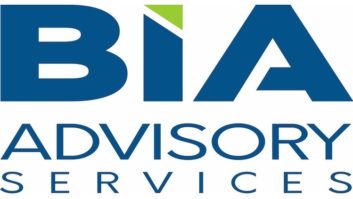Avoid Advertising Issue Pitfalls
Feb 1, 2014 8:00 AM, By Lee Petro
Recent advances in technology have led to questions on the legality of broadcast stations taking advertising from new sources. Specifically, several states have now begun permitting online gambling from authorized locations within their state. Further, the popularity of e-cigarettes raises issues as to whether the traditional prohibition on tobacco advertisements apply.
Online Gambling. Since the late 1990s, a frequently asked question has been whether broadcasters can take advertisements from online gambling companies. Initially, the best advice was for broadcasters to avoid taking these advertisements due to the federal government’s interpretation that online gambling violated the Interstate Wire Act of 1961. In particular, the Wire Act prohibits the interstate transmission of bets and/or wagers on any sporting event or contest, or a transmission in which the recipient is entitled to receive money or credit.
Because online gambling appeared to involve the transmission of betting information, and the bettor would either earn or lose credit or money based on its success, questions arose whether broadcasters would violate federal law for providing information (i.e., advertisements) regarding these illegal operations. In fact, several broadcasters in the mid-2000s received letters from the U.S. Department of Justice seeking information on the advertisements, and warning the broadcasters that future action may be taken for aiding violators of the Wire Act.
Flash forward to December 2011, when the Department of Justice issued an opinion and memorandum that offered a new interpretation of the Wire Act’s applicability to online gambling. Specifically, the DOJ opined that only interstate wagering activity involving sporting events or contests violates the Wire Act. The letter was issued in response to states looking to permit Internet-based lottery activity where state laws permit such actions. The conclusion of the DOJ was that such activities would not violate the Wire Act, but that the states must take affirmative action to make it legal under state law.
For example, New Jersey recently joined Nevada and Delaware to permit online gambling from locations within their respective states. In these states, it would appear there are no regulations that would prohibit a broadcast station taking an advertisement from an Internet gambling service operating in the respective states. However, stations should look very closely to determine if there are other regulations that must be followed. For example, in New Jersey, any gambling advertisement must contain a disclaimer similar to “Gambling Problem? Call 1-800-Gambler.” Other states may have similar requirements, so it is best to check with legal counsel before taking advertisements, especially if the station is unsure whether the state has legalized online gambling.
E-Cigarettes. The recent popularity of e-cigarettes also raises advertising issues, since there have been historical restrictions on advertisement of tobacco products. In particular, broadcast stations have been prohibited from advertising cigarettes and little cigars for more than 40 years. More recently, there have been restrictions on advertisement and sponsorship opportunities by tobacco companies in connection with the FDA’s rules to limit the exposure of cigarettes and other tobacco products to children.
However, in June 2013, the Consumer Protection Branch of the Department of Justice issued an opinion letter ruling that e-cigarettes do not fall under the restrictions on advertising for cigarettes because e-cigarettes do not contain “rolls of tobacco.” On the other hand, the U.S. Court of Appeals had ruled in 2010 that the FDA should regulate them as tobacco products and not as medical devices.
As a result, it would appear that broadcasters could advertise e-cigarettes, since they do not appear to be covered by the decades-long ban on cigarette advertising. However, broadcasters should ensure that the advertisements do not contain false or misleading information that would be difficult for the consumer to verify. The FTC has warned that misleading advertisements (“none of the harmful ingredients of tobacco cigarettes”) will likely draw close scrutiny by the FTC. Moreover, states or local governments may also have regulations that prohibit advertising e-cigarettes.
In summary, technological changes may be opening new advertising opportunities. However, the best advice for a broadcaster is to consult with legal counsel before taking the advertisement to ensure they do not run afoul of federal, state or local regulations.
FCC Dateline

Stations in New Jersey and New York continue running License Renewal Post-Filing Announcements on Feb. 16, March 1 and 16. Stations in Delaware and Pennsylvania continue running License Renewal Pre-Filing Announcements, continue running on Feb. 16, March 1,and 16.
Petro is of counsel at Drinker Biddle & Reath, LLP. Email: [email protected].
February 2014
Pre-fab transmitter buildings, tower maintenance, advertising pitfalls, rack-room wiring and more….







